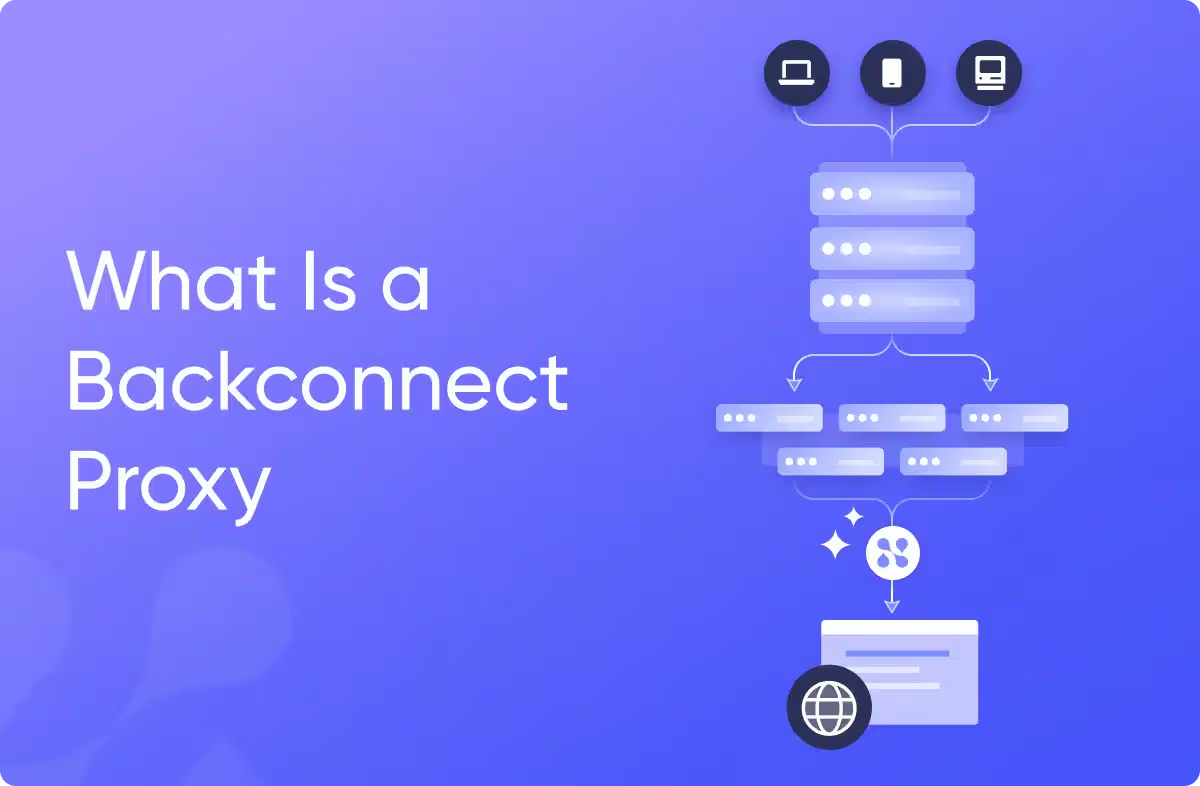SOCKS5 vs. HTTP Proxies: A Comprehensive Guide


Dive into the ultimate guide comparing SOCKS5 vs. HTTP/S proxies. Whether you're a newbie or a seasoned pro, we'll break down the key differences, uses, and what makes each one stand out in the world of proxy services. Get ready to make an informed choice!
What Are HTTP Proxies?
HTTP proxies are specialized intermediaries designed for web-based traffic. They use the HTTP (HyperText Transfer Protocol) to route your web requests through their servers, effectively hiding your IP address. These proxies follow a client-server model where your device (the client) sends requests to web servers through the proxy. Once the server responds, the proxy forwards the data back to you. This setup not only gives you anonymity, it also adds a layer of security, since each request is separate from the next.
Having said all that, there are still some risks involved in using HTTP proxies which we’ll discuss next.
The 'S' in HTTPS Proxies
HTTPS proxies are the more secure version of HTTP proxies. The 'S' stands for "Secure," and it's not just for show. When you use an HTTPS proxy, the requests you send are encrypted. This means that third parties can't easily snoop on the data you're sending or receiving. It’s not just about hiding your IP address; it's about securing the actual data being sent. Whether it's passwords, sensitive documents, or even your casual browsing activity, everything is encrypted for an added layer of security.
Ideal Use Cases for HTTP/S Proxies
HTTP/S proxies are versatile tools that excel in multiple online tasks, especially those needing extra security and functionality. Here are the key scenarios where they perform best:
- Secure Web Browsing: Browse the internet safely. Your data is encrypted, making it tough for snoopers to see what you're up to.
- Data Scraping: Ideal for pulling data from all types of sites. Encryption ensures the data you collect remains confidential.
- Online Banking: Safely check your account or make transactions. The secure connection makes it hard for anyone to steal your info.
- Streaming: Access geo-restricted content securely. Your real location stays hidden, and your data is encrypted.
- Social Media Management: Safely manage multiple accounts, while keeping your login details and activities secure.
- Remote Work: Access your work servers securely. HTTPS encryption ensures your professional data is safe.
- Online Shopping: Make purchases without worry. Your personal and payment details are encrypted.
By focusing on these use cases, you can get the most out of your HTTP/S proxy while keeping your online activities safe and secure.
What Are SOCKS5 Proxies?
SOCKS5, short for SOCKet Secure 5, is the most current version of the SOCKS internet protocol. Designed for multiple data traffic types, it's not just limited to web browsing. It uses TCP connections to ensure data reaches its destination reliably. Unlike HTTP/S proxies, SOCKS5 doesn't inspect or alter the data, making it versatile for different applications. However, this lack of data interpretation means it doesn't inherently offer the same level of security as HTTPS proxies.
SOCKS5 Use Cases
SOCKS5 proxies are known for their flexibility. Here are some situations where they excel:
- Navigating Firewalls: SOCKS5 is a go-to for bypassing stringent firewalls. If you're behind a firewall and need to connect to external servers, SOCKS5 can make it happen securely.
- Protocol and Port Flexibility: Unlike HTTP proxies, SOCKS5 supports any network protocol and can operate on any port. This makes it highly adaptable for a range of tasks.
- Gaming: Offers the speed and stability needed for online gaming, especially when every millisecond counts.
- Streaming: Perfect for dodging geo-restrictions to access content from various regions.
- Web Development: Test your apps or websites globally without compromising on speed or functionality.
Each of these use cases benefits from SOCKS5's ability to handle various types of data and maintain fast connection speeds.
SOCKS5 vs. HTTP/S: The Ultimate Showdown
Deciding between SOCKS5 vs. HTTP/S proxies isn't a one-size-fits-all answer; it hinges on your unique requirements. From secure web browsing to data-intensive tasks, each proxy type offers distinct advantages. Our guide delves deep into their features and performance metrics, giving you all the insights you need to make the best choice for your specific use-cases.
Security Aspects
Both SOCKS5 and HTTP/S proxies serve as intermediaries between your device and the web, making your activities harder to trace. However, HTTP/S proxies typically offer better security because they can understand and filter data packets. SOCKS5, while versatile, doesn't offer native encryption, making it less secure unless paired with additional security measures.
Performance Comparison
If speed is a top priority, both types have their merits. HTTP/S proxies can cache web data and manage more requests per second, optimizing load speeds. SOCKS5, being simpler to apply, is often faster for tasks like downloading or transferring data.
Functional Versatility
HTTP/S proxies are mainly designed for web traffic and can be tailored to various tasks due to their ability to understand web data. SOCKS5 is more flexible, not being tied to any specific network protocol, making it useful for a wider range of tasks, including bypassing firewalls.
In the face-off between SOCKS5 and HTTP/S proxies, each has its own set of strengths and ideal use-cases. While HTTP/S proxies come out on top for security and specific web tasks, SOCKS5 shines in versatility and speed for data transfers. Your choice should align with your unique needs, whether that's top-notch security or the flexibility to handle various types of data traffic.
Now, let’s dive deeper into how you can choose the right proxy with ease.
How to Choose the Right Proxy
Picking the right proxy is crucial for optimizing your online activities and improving the results. Whether you're considering SOCKS5 or HTTP/S, here's what you need to keep in mind.
Factors to Consider
When choosing a proxy, focus on speed, security, and the tasks you need it for. Here's a breakdown:
Common Mistakes to Avoid
When picking a proxy, avoid these pitfalls:
- Ignoring Security: Never skimp on security features, especially if you're handling sensitive data. This means that you should avoid any type of free proxy available online - whether SOCKS5 or HTTP/S.
- Overlooking Speed: A slow proxy can be a bottleneck for time-sensitive tasks. Choose a proxy that is more likely to deliver the best results for your use case.
- Not Testing: Always test the proxy for your specific tasks before committing. At Nimble, for example, we offer a free trial for all of our proxies.
- Ignoring Terms of Service: Make sure you're compliant with the proxy provider's terms to avoid unexpected issues. Reputable proxy providers will not allow shady activities.
By taking these factors and precautions into account, you'll be well on your way to selecting the right proxy for your needs.
SOCKS5 vs. HTTP/S - Final Verdict
Choosing between SOCKS5 and HTTP/S proxies doesn't have to be a puzzle; it's all about aligning the proxy type with your specific needs. Whether you're into data-heavy tasks like torrenting or you prioritize security for web scraping, there's a perfect fit for you.
When it comes to reliable and secure proxy services, Nimble leads the pack. Our premium residential proxies offer the ultimate blend of speed and security, making us a top choice for a variety of applications. Want to dive deeper into web scraping or curious about integrating proxies with your existing tools? We've got you covered with comprehensive guides and top-notch support.
Feel free to reach out to our team at Nimble for personalized advice on selecting the perfect proxy solution for your needs.
FAQ
Answers to frequently asked questions
.avif)





.png)






